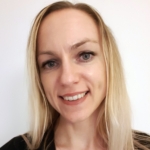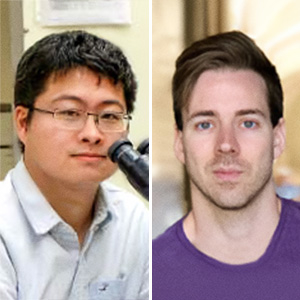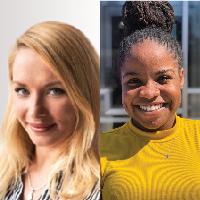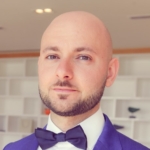ASAP’s network is formed by a vibrant and ever-growing community of researchers from all over the world who share our commitment to accelerating Parkinson’s discovery through collaboration.
Our network spotlight series celebrates individuals and labs that have been recognized for their contributions to ASAP. We are honored to work with a network formed by researchers at all career stages who believe in our mission just as much as we do, dedicated to accelerating the pace of discovery for Parkinson’s disease (PD) through collaboration, research-enabling resources, and data sharing.
Our spotlight series highlights members of the Collaborative Research Network (CRN) who have been nominated by their peers for their outstanding contributions to ASAP’s mission.
Roberta Marongiu | Thomas Wichmann | Alexandra Nelson | Per Svennigsson | Eileen Ruth Torres | Jacquelyn Haytayan
Members of the Assessment of Motor and Non-Motor PD Symptoms Working Group, Roberta Marongiu (Team Kaplitt), Thomas Wichmann (Team Wichmann), Alexandra Nelson (Team Edwards), Per Svennigsson (Team Kaplitt), Eileen Ruth Torres (Team Kaplitt), and Jacquelyn Haytayan (Team Kaplitt), developed guidelines and considerations for the most commonly used rodent behavioral assays of Parkinson’s Disease (PD). They also added a collection of suggested protocols for these assays to the ASAP workspace on protocols.io. ASAP applauds the working group’s contribution to reproducibility and standardization of rodent behavior assays in PD.
Follow Roberta on LinkedIn. Follow Alexandra on LinkedIn. Follow Eileen on LinkedIn. Follow Jacquelyn on LinkedIn.
Xiqun Chen | Anthony Schapira | Weiyi Peng | Sara Lucas Del Pozo
Members of the Clinical and Immune Working Group, Xiqun Chen (Team Chen), Anthony Schapira (Team Schapira), Weiyi Peng (Team Chen), and Sara Lucas Del Pozo (Team Schapira), developed standardized templates for reporting on metadata associated with participants of a clinical trial and studies that utilize PBMCs. Metadata is important for ensuring data is understandable and reusable to anyone now or in the future. ASAP applauds the working group’s contribution to the standardization and reuse of clinical datasets.
Follow Xiqun Chen on LinkedIn. Follow Weiyi Peng on Linkedin.

Bishal Basak
Team Hurley
Bishal Basak (Team Hurley) single-handedly worked on the Team Hurley paper, “Mitochondrial damage triggers concerted degradation of negative regulators of neuronal autophagy.” Dysfunction of mitochondrial quality control pathways, such as mitophagy, has long been implicated in PD. However, therapeutics aimed at targeting mitophagy have been largely unsuccessful. Bishal’s work identifies a novel, neuron-specific mitophagy pathway that could serve as a new therapeutic target to enhance mitochondrial quality control. ASAP applauds Bishal’s contribution to the PD field.
Follow Bishal Basak on LinkedIn.
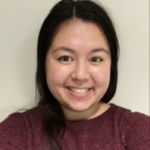
Amanda Schneeweis
Team Awatramani
Amanda Schneeweis (Team Awatramani) hosted an ASAP social at the 2024 Society for Neuroscience Conference in Chicago that brought together conference attendees from several ASAP CRN teams. The gathering was a memorable evening to connect beyond groundbreaking Parkinson’s disease research. When asked about what inspired Amanda to host the event, she said, “To some degree, we are all familiar with each other’s scientific work, but opportunities like this create a space to connect with each other on a human level – learning about hobbies, interests, and lives outside of the lab. Importantly, it also brings together all levels: trainees to faculty. I think connecting with each other in this way only enhances the desire to collaborate and benefits the mission of open science.”
Follow Amanda on LinkedIn.
Dorotea Fracchiolla | Maryam Shoai | Mary Xylaki | Aine Fairbrother-Browne | Ka Wai Lee | Raquel Real | Thomas Goralski
As part of the Trainee Working Group (TWiG) Workshop Committee, Dorotea Fracchiolla (Team Hurley), Maryam Shoai (Team Hardy), Mary Xylaki (Team Schlossmacher), Aine Fairbrother-Browne (Team Hardy and Team Wood), Ka Wai Lee (Team Vila), Raquel Real (Team Hardy), and Thomas Goralski (Team Biederer) organized their first workshop, “A Conversation about Sustainability in Research,” in October. The workshop hosted Dr. Riccardo Trapannone, a researcher actively promoting sustainability at the Max Perutz Research Institute in Vienna. ASAP applauds this committee’s work to increase discourse around important topics in Parkinson’s disease research.
Follow Dorotea Fracchiolla on LinkedIn. Follow Mary Xylaki on LinkedIn. Follow Aine Fairbrother-Browne on LinkedIn. Follow Ka Wai Lee on LinkedIn. Follow Raquel on LinkedIn. Follow Thomas Goralski on LinkedIn.
Varnica Khetrapal
Team Hafler
Varnica Khetrapal from Team Hafler oversaw the development of a microbiota culture collection with 1,400+ unique bacterial strains from 46 study participants. She has made the collection available to the CRN.
Follow Varnica on LinkedIn.
Zane Jaunmuktane
Team Hardy, Team Voet, and Team Wood
Zane Jaunmuktane, who is a member of Teams Hardy, Voet, and Wood, is an active member of the CRN. She is the chair of the ANALYSE Neuropathology Working Group; co-lead of the sample alignment group within the Single Cell Multi(omics) Working Group; and is a member of the Spatial Transcriptomics Working Group. Additionally, Zane has supported the CRN Cloud team. ASAP commends Zane for going above and beyond and supporting various PD-related research projects.
Follow Zane on LinkedIn.
Anthony Russo | Oliver Tam | Sonia Garcia-Ruiz | Oke Avwenagha | Xianjun Dong
As part of the Single Cell Multi(omics) Working Group, Anthony Russo (Team Hafler), Oliver Tam (Team Jakobsson), Sonia Garcia-Ruiz (Team Hardy), Oke Avwenagha (Team Hardy), and Xianjun Dong (Team Scherzer) generated a guide on how to write README files for code. This guide is now available on Zenodo. ASAP commends this group for their dedication to assisting others in generating README files for code.
Follow Oliver on LinkedIn. Follow Sonia on LinkedIn. Follow Xianjun on LinkedIn.
Aerts Lab | Team Voet
The Aerts Lab, as part of Team Voet, developed a new deep-learning strategy for selectively optimizing gene expression through the design of cell-type-directed synthetic enhancers. This strategy allows for a deeper understanding of gene expression and gene function testing in context. In addition, this process may allow for further understanding of non-coding genetic variants and neurological disease biology, with a potential impact on future therapeutic strategies.
Catherine Oikonomou | Andreea Bostan | Ben O’Callaghan | Courtney Wright | Tina Matos
As part of the Trainee Working Group Resource & Opportunities Committees, Catherine Oikonomou (Team Gradinaru), Andreea Bostan (Team Strick), Ben O’Callaghan (Team Hardy), Courtney Wright (Team Kirik), and Tina Matos (Team Biederer) have created multiple resources for the Collaborative Research Network trainees to use, which include a dashboard of jobs and funding opportunities.
Follow Andreea on LinkedIn. Follow Ben on LinkedIn. Follow Courtney on LinkedIn. Follow Tina on LinkedIn.
Armin Bayati | Yuhong Fu | Sabina Marciano | Cláudia Mendes | Jhodi Webster | Charlotte Brzozowski | Tina Matos
Armin Bayati (Team Chen), Yuhong Fu (Team Edwards, Kirik, and Vila), Sabina Marciano (Team Kaplitt), Cláudia Mendes (Team Cragg), Jhodi Webster (Team Kordower), Charlotte Brzozowski (Team Biederer), and Tina Matos (Team Biederer) were hosts of the 2024 ASAP Celebration of Scientific Achievement (COSA) trainee workshops. ASAP recognizes the effort they put into making the workshops a success.
Follow Armin on LinkedIn. Follow Yuhong on LinkedIn. Follow Sabina on LinkedIn. Follow Cláudia on LinkedIn. Follow Jhodi on LinkedIn. Follow Charlotte on LinkedIn. Follow Tina on LinkedIn.
Felix Kraus | Melissa Grant-Peters | Toby Curless | Benjamin O’Callahan | Dorotea Fracchiolla | Ester Kalef-Ezra | Raquel Real | Courtney Wright
The 2024 ASAP Celebration of Scientific Achievement (COSA) event was made possible with the work of many individuals in the CRN. Felix Kraus (Team Harper), Melissa Grant-Peters (Team Wood), Toby Curless (Team Hardy), and Benjamin O’Callahan (Team Hardy) volunteered their time to assist with COSA by providing helpful feedback and recommendations to improve this year’s event. Additionally, a trainee-workshop review panel consisting of Dorotea Fracchiolla (Team Hurley), Ester Kalef-Ezra (Team Voet), Raquel Real (Team Hardy), and Courtney Wright (Team Kirik) helped identify trainee-led workshops that were presented during COSA.
Follow Felix on LinkedIn. Follow Melissa on LinkedIn. Follow Toby on LinkedIn. Follow Dorotea on LinkedIn. Follow Ester on LinkedIn. Follow Raquel on LinkedIn.
Haydeh Payami | Sarkis Mazmanian | Mathieu Almeida | Lilia Rodriguez
The Microbiome Working Group Leadership team – Haydeh Payami (Team Liddle), Sarkis Mazmanian (Team Sulzer/Team Gradinaru), Mathieu Almeida (Team Schapira), and Lilia Rodriguez (Team Desjardins) – recognized the need for a centralized program dedicated to providing the CRN with microbiome data management and analytic support, and proposed the Microbiome Analytics Core (MAC). As part of this proposal, the leads identified the needs of the ASAP community, outlined the goals of the MAC, and identified a MAC director.
Follow Haydeh on LinkedIn. Follow Sarkis on LinkedIn. Follow Mathieu on LinkedIn. Follow Lilia on LinkedIn.
Oke Avwenagha | Shaline Fazal | Sofia Koletsi | Cláudia Mendes | Saadia Rahman | Sara Salama | Francesca Tonelli
Seven project managers from across the ASAP CRN collaborated to host an ASAP meeting in the U.K.: Oke Avwenagha (Team Hardy), Shaline Fazal (Team Jakobsson), Sofia Koletsi (Team Schapira), Cláudia Mendes (Team Cragg), Saadia Rahman (Team Wood), Sara Salama (Team Voet), and Francesca Tonelli (Team Alessi). These individuals coordinated all the planning necessary to ensure that the meeting was successful – from the organization of attendees to team presentations.
Hanqin Li and Oriol Busquets Figueras
CRN Young Investigator | Team Rio
Hanqin Li is a postdoctoral scholar at the University of California at Berkeley and a part of ASAP’s Hockemeyer Lab (Team Rio). Oriol Busquets Figueras is a postdoctoral researcher at Albert Einstein College of Medicine and a part of ASAP’s Soldner Lab (Team Rio). Through their collaboration, Hanqin and Oriol helped develop a novel prime edited-based genome editing platform for human pluripotent stem cells (hPSCs). They utilized this new approach to generate multiple hPSC lines containing familial Parkinson’s disease associated mutations, with the goal of studying how these different genetic variations contribute to the development of Parkinson’s.
Check out our spotlight of Hanqin and Oriol from May 2022, here. Follow Hanqin on LinkedIn. Follow Oriol on LinkedIn.
Charlotte Brzozowski (Team Biederer) and Jhodi Webster (Team Kordower)
After attending the 2024 Collaborative Meeting Series, Jhodi Webster (Team Kordower) and Charlotte Brzozowski (Team Biederer) collaborated to co-chair a Trainee Working Group. Together, they designed the framework for providing avenues within the CRN to allow trainees to connect, enhance their leadership skills, and learn about professional development opportunities.
Daniel El Kodsi
CRN Project Manager | Team Scherzer
Daniel El Kodsi is the project manager for Team Scherzer and the Spatial Transcriptomics Working Group. Additionally, Daniel, upon recognizing that members of the CRN are interested in senescence, proposed expanding the Senescence Working Group to include more teams and deliverables, including cataloging Senescence tools and resources used by the ASAP CRN.
Follow Daniel on LinkedIn.
Alexia Kalogeropulou
CRN Young Investigator | Team Alessi
Alexia Kalogeropulou is a graduate student at the University of Dundee’s MRC Protein Phosphorylation and Ubiquitylation Unit. As a member of Team Alessi, she spearheaded a study examining 98 different Leucine Rich Repeat Kinase 2 (LRRK2) variants linked to Parkinson’s impacted activity of LRRK2. This work provides new insights into how pathogenic mutations activate LRRK2.
Check out our spotlight of Alexia from June 2022, here. Follow Alexia on LinkedIn.
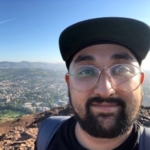 Gurvir Virdi
Gurvir Virdi
CRN Young Investigator | Team Wood
As a postdoctoral research fellow in Sonia Gandhi’s lab at University College London and a member of Team Wood, Gurvir Virdi’s research focuses on modeling early events in PD pathology. Using methods he optimized in the lab, Gurvir Virdi was able to identify alpha-synuclein aggregation and calcium dysregulation as early disease pathways in PD from human derived iPSCs harboring SNCA mutations. Ultimately, Gurvir hopes that his work helps to inform and optimize future PD therapeutics.
Check out our spotlight of Gurvir from April 2022, here. Follow Gurvir on Twitter or LinkedIn.
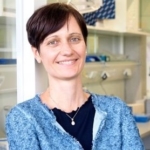 Michela Deleidi
Michela Deleidi
Principal Investigator | Team Schapira
Michela Deleidi is an Assistant Professor in Germany’s University of Tübingen. As a Principal Investigator in the CRN’s Team Schapira, she has shared cell lines with other Teams as well as iPSC differentiation protocols for the network to use. She was nominated by her colleagues for her willingness to collaborate and share data with others.
Check out our spotlight of Michela from March 2022, here. Follow Michela on Twitter or LinkedIn.
 Devin Snyder
Devin Snyder
CRN Project Manager | Team Rio
Devin Snyder is a part of Team Rio, which is focused on dissecting the genetic interactions of PD-associated risk loci. Through the CRN Times–a quarterly magazine which she initiated–members of the Collaborative Research Network are able to learn more about the interests and work of their peers, promoting greater collaboration. Devin also supports the success of new Hub users by creating conducive onboarding videos introducing them to the platform.
Check out our spotlight of Devin from December 2021, here. Follow Devin on LinkedIn.
 William Hancock-Cerutti
William Hancock-Cerutti
CRN Young Investigator Alum | Team De Camilli
As an alum of Pietro De Camilli’s lab at Yale, Will is studying the role of lipid transfer proteins in neurodegenerative disease. Having recently defended his PhD thesis, he is now working towards completion of his MD, continuing to bring a physician perspective to basic research. In addition to his rigorous studies, Will is an esteemed colleague recognized for fostering a culture of diversity, inclusion, and environmentalism.
Check out our spotlight of William from November 2021, here.
 Oke Avwenagha
Oke Avwenagha
CRN Project Manager | Team Hardy
As the project manager of CRN’s Team Hardy, Oke is spearheading a working group to standardize data collection forms to facilitate comparisons and meta-analysis for all ASAP researchers working with postmortem tissues. Her professionalism and attention to detail go above and beyond and ensure that ASAP’s mission of facilitating collaboration, generating research, enabling resources, and data sharing is achieved.
Check out our spotlight of Oke from October 2021, here.
 Darren Moore
Darren Moore
CRN Investigator | Team Lee
As a member of CRN’s Team Lee, Darren has established a strong track record in the study of gene products associated with familial Parkinson’s disease which offer promising opportunities for the development of new treatments designed to target the root causes of the disease. In addition to his research work, he an extremely nurturing and motivating mentor for next generation PD researchers.
Check out our spotlight of Darren from September 2021, here. Follow Darren on LinkedIn.
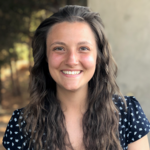 Catherine Storm
Catherine Storm
CRN Young Investigator | Team Wood
As a member of Team Wood, Catherine has performed excellent quality work in investigating genetic techniques to identify putative drug targets for Parkinson’s disease risk and progression. The work was placed on bioRxiv 15 months before submission, demonstrating Catherine’s commitment to open science. For a junior research fellow, she has shown great maturity in building collaborative efforts across International Parkinson’s Disease Genetics Consortium (IPDGC) and more recently, GP2.
Check out our spotlight of Catherine from August 2021 here, and follow her on Twitter.
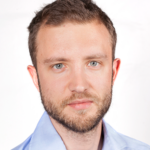 Marco Toffoli
Marco Toffoli
CRN Young Investigator | Team Schapira
As a member of CRN’s Team Schapira, Marco has worked on GBA mutations in PD for the last three and a half years. He has worked extensively on targeted sequencing of the GBA locus to successfully resolve the entire gene and detect complex SVs. He has multiple open access publications that were released in 2021.
Check out our spotlight of Marco from July 2021 here, and follow him on Twitter.
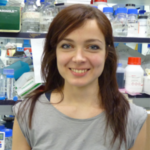 Francesa Tonelli
Francesa Tonelli
CRN Project Manager | Team Alessi
As a strong advocate of ASAP’s mission, Francesca oversees all of the collaboration between Team Alessi labs, ensures all data and reagents are shared, deals with finances and administration, arranges meetings, updates websites, mentors young scientists, performs key experiments, and is the go-to person for anyone in the team looking for information.
Check out our spotlight of Francesca from June 2021 here, and follow her on LinkedIn.
 Emil Gustavsson
Emil Gustavsson
CRN Young Investigator | Team Wood
As a member of CRN’s Team Wood, Emil has implemented long-read sequencing of RNA to better understand the genome, with a focus on genes relevant for Parkinson’s disease. Particularly, he is working to unravel the link between SNCA splicing and oligomerisation of the protein. The long-term goal is to provide molecular targets, diagnostic and prognostic tools, and research insights to “lower the bar” for major pharmaceutical investment and to help develop disease-modifying therapeutics aimed at neuroprotection.
Check out our spotlight of Emil from May here, and follow him on Twitter.
 Dorotea Fracchiolla
Dorotea Fracchiolla
CRN Project Manager | Team Hurley
As the Project Manager of Team Hurley, Dorotea initiated the Mito911 series that has become extremely popular throughout the network and is always willing to volunteer for different roles, from designing the images for Mito911, to creating cool stop animation videos to explain how autophagy machinery works, and helping steer subgroup meetings with her chairs.
Check out our spotlight of Dorotea from April 2021 here, and follow her on Twitter.
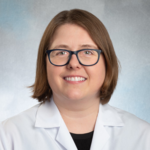 Abby Olsen
Abby Olsen
CRN Investigator | Team Scherzer
As a member of CRN’s Team Scherzer, Abby has been working to develop glial-based therapies for Parkinson’s disease, and she is building a comprehensive research program for identifying and determining the mechanism of glial modifiers of α-synuclein toxicity. In her work thus far, she has conducted essential studies demonstrating the validity of this approach and methodically laying the groundwork to launch her independent laboratory.
Check out our spotlight of Abby from April 2021 here, and follow her on Twitter.
 Ben Hobson
Ben Hobson
CRN Young Investigator | Team Sulzer
As a member of CRN’s Team Sulzer, Ben has been exploring the immunological capabilities of dopamine neurons and developing new technology for cell type-specific and subcellular proteomics in the mouse brain.
Check out our spotlight of Ben from April 2021 here, and follow him on Twitter.
 Miratul Muqit
Miratul Muqit
CRN Core Leadership | Team Alessi
As a co-Principal Investigator of CRN’s Team Alessi, Miratul has been working to solve one of the hardest questions in Parkinson’s disease research: How do pathogenic mutations in PINK1 affect mitochondrial function (and how do these lead to neurodegeneration)? He is also spearheading the development of tools to monitor PINK pathway signaling.
Check out our spotlight of Miratul from April 2021 here, and follow him on Twitter.


